raccoon control
-
Benefits of Preventive Raccoon Control: How Can Hawkeye Help Protect Your Property?
Preventive raccoon control begins with you. Look past the cute little faces and remember that raccoons can bring potential damage and health risks to you and your family. Next time you notice these pests nesting on your property or trying to make their way into your home, contact a reliable raccoon control company in Toronto, such as Hawkeye Bird and Animal Control to prevent the situation from getting out of hand.
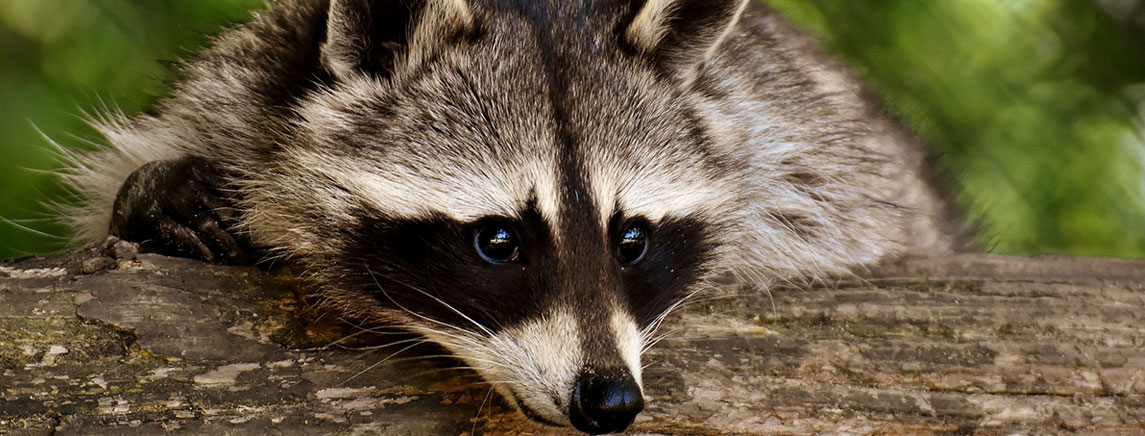
Benefits of Preventive Raccoon Control
There are many steps you can take to ensure the safety of your family and pets, as well as protect your property from damage. Consider these preventive measures.
Avoid Damage to Your Property
From drywall to wires, raccoons can claw and chew their way through most materials found in and around the structure. They can remove roofing and vinyl siding to gain access to a building. Once inside, a raccoon will use insulation and fabric materials to build a cozy nest. Yards are also no match for the critters as they will destroy a garden and lawn to obtain food, such as vegetables or insects. By taking preventative measures, you can reduce the risk of having to make costly repairs to your home and garden.
Health and Safety Concerns
Taking raccoon control methods now can protect people from the risk of becoming infected by disease. Aside from receiving a scratch or bite from a rabid raccoon, you are at risk of roundworm, giardiasis, and salmonellosis, among others. As with all wildlife, raccoons are territorial and will attack if they feel threatened. If any pets or humans get too close, they will lash out and become defensive by biting and scratching. Learn what to do or not to do when an encounter with a raccoon cannot be avoided »
Maintain a Comfortable Living Environment
When raccoons settle into a home, there can be a great deal of noise erupting as they move throughout the attic or destroy the walls. Raccoons will also growl, hiss, and whimper loudly. Due to their wide options of diet, raccoons can cause unpleasant odours in many different ways, including their urine and feces.
-
Can Electric Fencing Be Used for Raccoon Control?
While raccoons are super smart and do a fantastic job of evading or plain ignoring most barriers and deterrents, there's a case to be made for electric fencing and shock tracks. That's what we'll focus on in this article.
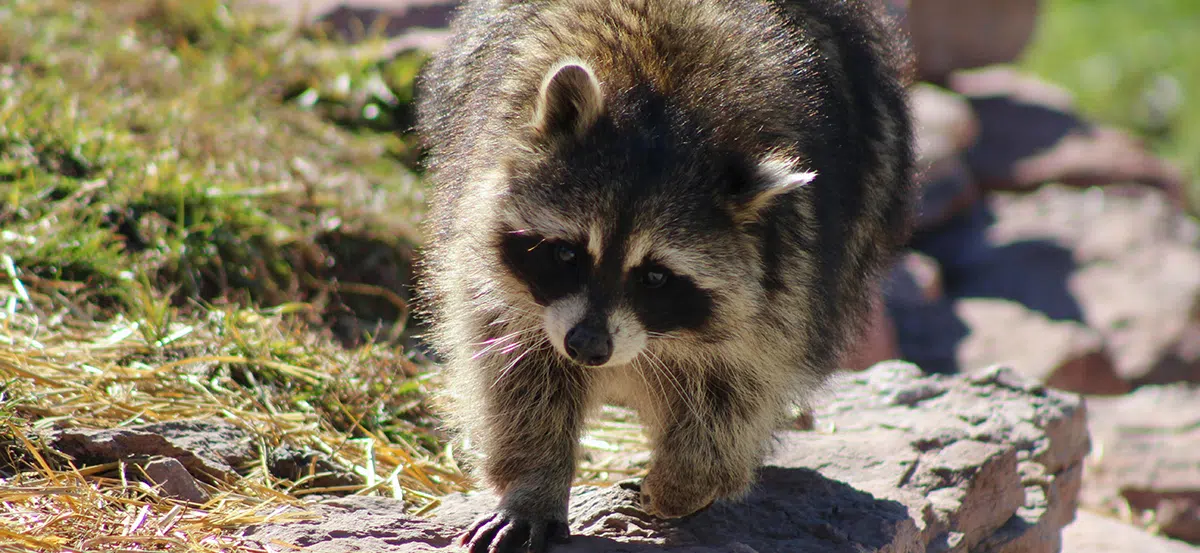
Growing interest in electric fencing and shock tracks is due to:
- Repeated raccoon return
- Structural damage
- Crop damage
- Raided dumpsters and gardens
Electric fencing is a raccoon deterrent, not a removal option. It does not eliminate raccoons already on site, and it has its limitations, as we'll discuss later on.
-
Get Rid of Raccoons from Homes Near Pickering’s Ravines and Green Spaces
Pickering and Ajax are two communities located only half an hour east of Toronto and known for some of the best hiking and cycling trails, lush ravines, and a beautiful waterfront. Forested neighbourhoods near Rouge Park, Altona Forest, or Duffins Creek Valley offer charm and an almost rural feel but they also act as natural raccoon highways, bringing animals from the wild to residential and commercial areas—especially in the fall as raccoons seek warm dens for overwintering.
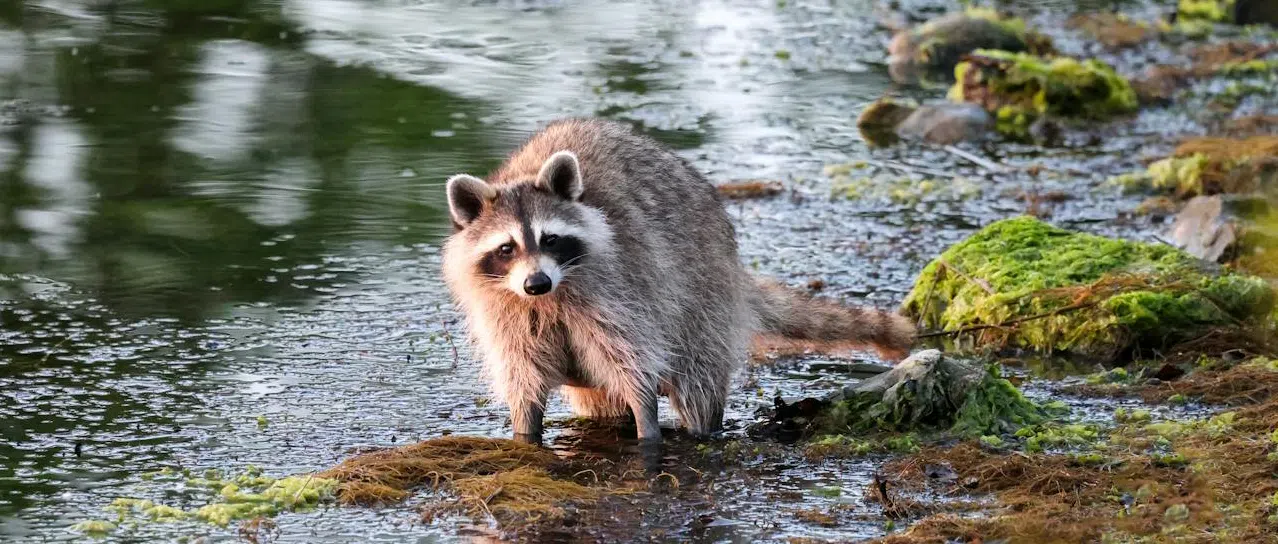
Due to loss of habitat and their incredible intelligence and adaptability, raccoons don't stay in the forest - they move into your home.
Why Fall Triggers Raccoon Infestations from Green Spaces
Survival Instinct
Fall is the season to prepare for long and often harsh Ontario winters. Here's what raccoons are looking for:
- Warm and secure shelter to build a winter den;
- Consistent food sources, often provided by unwitting humans (garbage, compost, outdoor pet food, etc.).;
- Quiet places with little human interference; this could be garden sheds and other outbuildings, attics, storage units, or under decks and porches;
The Urban-Forest Edge Effect
Neighbourhoods that border ravines are highly attractive due to the availability of water, seclusion, and food. Raccoons are rather opportunistic creatures and much prefer a quick and easy meal over one that needs to be chased down. Hence, they have learned to appreciate human offerings and view areas near the forest edge as ideal habitats.
Raccoon Hotspots in Pickering: High-Risk Ravine-Edge Zones
Residents and property managers in the following areas see a stark increase in raccoon activity once autumn has arrived:
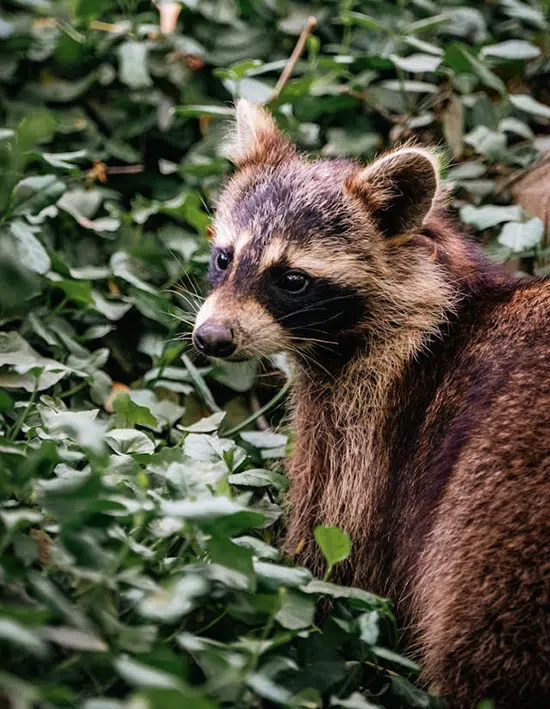
Rougemount / Highbush
- Proximity to Rouge National Urban Park and a natural wildlife refuge;
- Older homes, featuring large lots and mature trees;
- Raccoons can easily access rooftops via fences and branches.
Altona Forest / Amberlea
- Homes and schools are bordering dense forest;
- Green bins, school dumpsters, and open vents make for common entry points;
- We receive many reports of raccoons entering attic crawlspaces.
West Shore / Bay Ridges
- Close to Frenchman’s Bay and marshland trails;
- Ideal for raccoons nesting under sheds, decks, or boathouses.
Duffins Creek Corridor
- New developments + preserved lands = wildlife mixing with homes;
- Commercial developments near hydro corridors and wooded lots are also affected.
Why Raccoons Easily Move Between Ravines and Homes
- Unlike skunks or groundhogs, raccoons are motivated and agile climbers: They use fence lines, tree branches, and even utility poles to cross from ravines into backyards and rooftops;
- Raccoons are also clever and strong and readily rip soffits, pry open vents, and dislodge shingles to gain access to homes.
- Temporary exclusion methods fail when there’s a ready refuge in nearby woods.
- Warm and secure shelter to build a winter den;
-
How Raccoon Breeding Season Impacts GTA Commercial Properties
While Toronto and surrounding areas may still be covered in snow and ice in January, raccoon mating season is as little as eight weeks away. Breeding season transforms raccoon activity from occasional intrusion into high-risk occupancy.
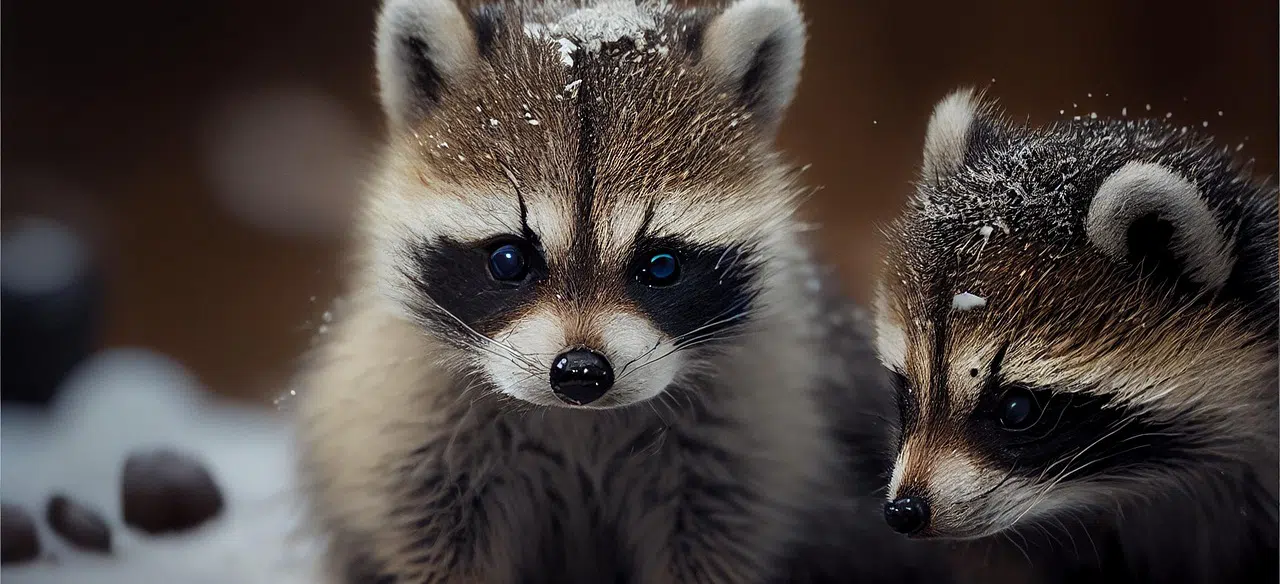
Commercial, industrial, and municipal buildings offer warmth, height, and concealment, , making them ideal for raccoon dens. Commercial property managers often underestimate the impact of breeding-season until operations are disrupted or worse, halted.
Raccoon breeding season isn't just a pest issue; it's a high-stakes liability and structural emergency that requires immediate, permanent action.
Note that this article focuses on commercial, institutional, and municipal properties, not single-family homes.
-
How to Get Rid of a Dead Raccoon
The Grim Discovery: Guided by a pungent, sickly-sweet odor or an unusual abundance of flies, you find yourself staring down at a dead raccoon on your property. What to do?
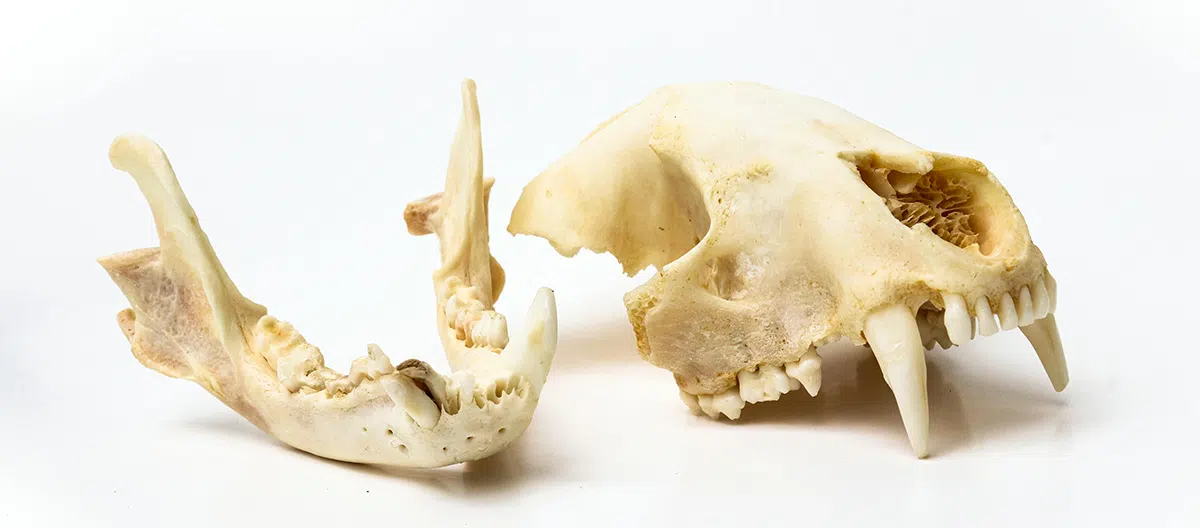
A raccoon carcass is more than a nuisance; it is a concentrated source of bacteria, parasites, and infectious disease that requires immediate, specialized handling.
-
How to Get Rid of Raccoons from Crawl Spaces
Do you think you might have raccoons in a crawl space in your building? Here’s everything you need to know in terms of wildlife control and beyond, whether your property is residential or commercial, urban or rural.
First off, a crawl space is a shallow space, often beneath the first floor of a building, which represents a raccoon’s ideal sanctuary. It provides guaranteed warmth, dryness, and darkness—perfect for year-round shelter and crucial for winter denning. An infestation here is a direct threat to a building’s structural health, utilities, and indoor air quality and this is true for both homes and businesses with raised foundations or subfloors .
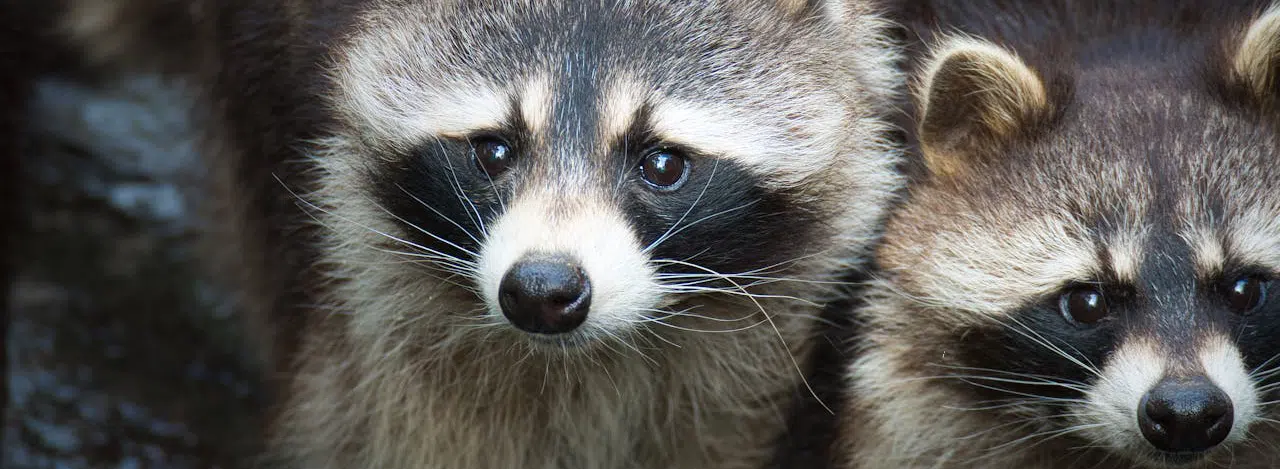
You might not even realize you’re sharing your foundation with an entire raccoon family until it’s too late!
Why Raccoons Choose Crawl Spaces
- Crawl spaces offer warmth during the winter and protection from predators.
- Insulation materials make them ideal for nesting.
- Food waste, pet food, or compost bins often are nearby.
- Access is facilitated by small foundation gaps, vents, or loose grates.
What Types of Properties Are at Risk?
Residential
- Older homes with wooden foundations or open vents.
- Mobile homes and enclosed trailers.
- Houses with easy backyard access, pet feeding areas, or gardens.
Commercial
- Restaurants or food service buildings with nearby dumpsters.
- Warehouses or storage units built on raised concrete pads.
- Multi-unit housing complexes with utility crawl spaces.
Rural or Suburban Properties
- Farmhouses or cottages with unsealed crawl access points.
Signs of a Raccoon Infestation in Crawl Spaces
- Scratching, thumping, or chirping at night.
- Strong ammonia-like odour from urine and feces.
- Torn insulation or ripped vapor barriers.
- Droppings, tracks, and greasy rub marks near vents or foundation openings.
-
How to Get Rid of Raccoons in Confined Spaces
Confined (or small) spaces pose added challenges when it comes to trapping and removing raccoons. Not only may the space be difficult to access and/or too small to set an appropriate trap, but the animal(s) will also be cornered and in a defensive state of mind. Especially when it comes to confined spaces, DIY removal can be down right dangerous, so you should always consult a professional raccoon removal service.

A "confined space" in the context of wildlife includes wall voids, floor joists, crawlspaces, HVAC ducts, and soffit gaps where human access is difficult or next to impossible.
In this article, we'll explore the spaces in which you can expect to find raccoons and removal solutions ranging from relocation to permanent raccoon removal.
How Small of a Space Can a Raccoon Fit into?
We think of raccoons as roly-poly, lumbering critters and often underestimate their agility and flexibility; this is particularly true when it comes to squeezing into tight openings. In reality, raccoons can access openings of four to five inches in diameter.
-
How to Get Rid of Raccoons in Corn Fields?
Raccoons are among the most destructive wildlife pests affecting corn crops in the GTA. They cause large-scale financial losses due to stalk breakage, kernel removal, and trampled rows.
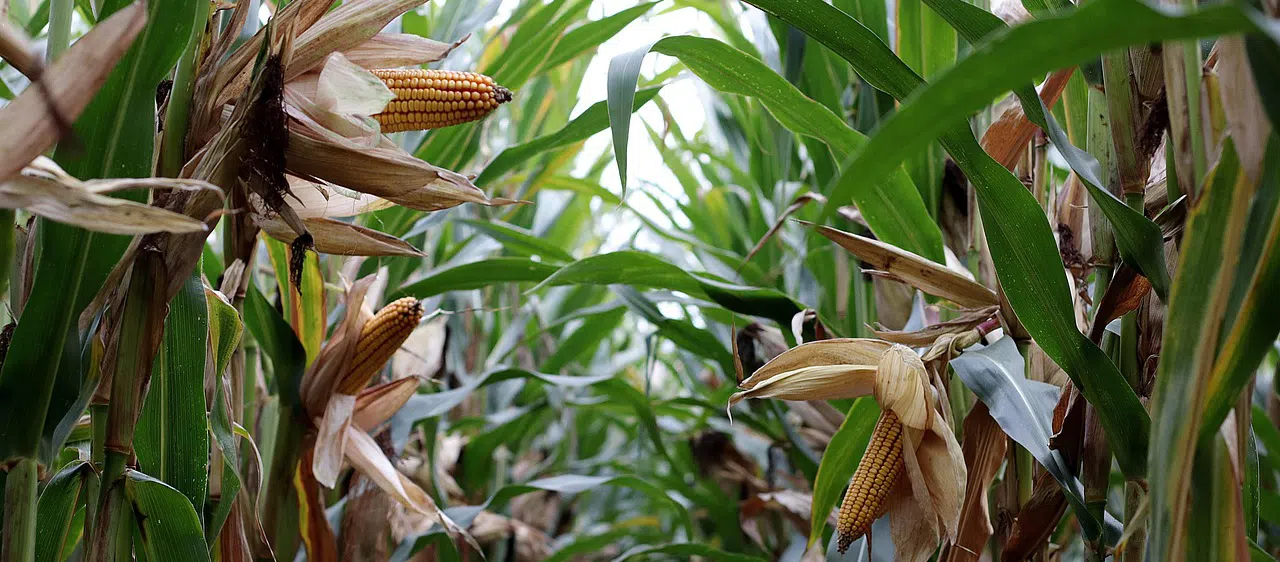
Corn fields are especially attractive due to the cover provided by tall stalks, sweet corn sugars, and nighttime accessibility, all on large acreage. Traditional raccoon trapping and relocating does not work here as raccoons will almost always return.
Hawkeye’s permanent raccoon removal is legal, ethical, and the only effective long-term solution.
Why Raccoons Target Corn Fields
- Corn provides high-energy food right before winter (late-summer carbohydrate loading).
- Fields are often close to forest edges, barns, irrigation ponds, or abandoned structures.
- Tall stalks are perfect for temporary cover, hiding, and denning.
- Nearby rural dumpsters or livestock feed is easily exploited.
-
How to Get Rid of Raccoons in GTA Storm Drainage Systems
Yep, that's probably not what you'd expect to hear on your evening news - but there have actually been several incidents of raccoons stuck in storm or sewage drains. Some made the news and involved hours of rescue work by concerned citizens, police, and animal control. One of these occurred in Heritage Park, Holyoke, MA: The grate was eventually removed and the unfortunate animal was freed using laundry detergent.
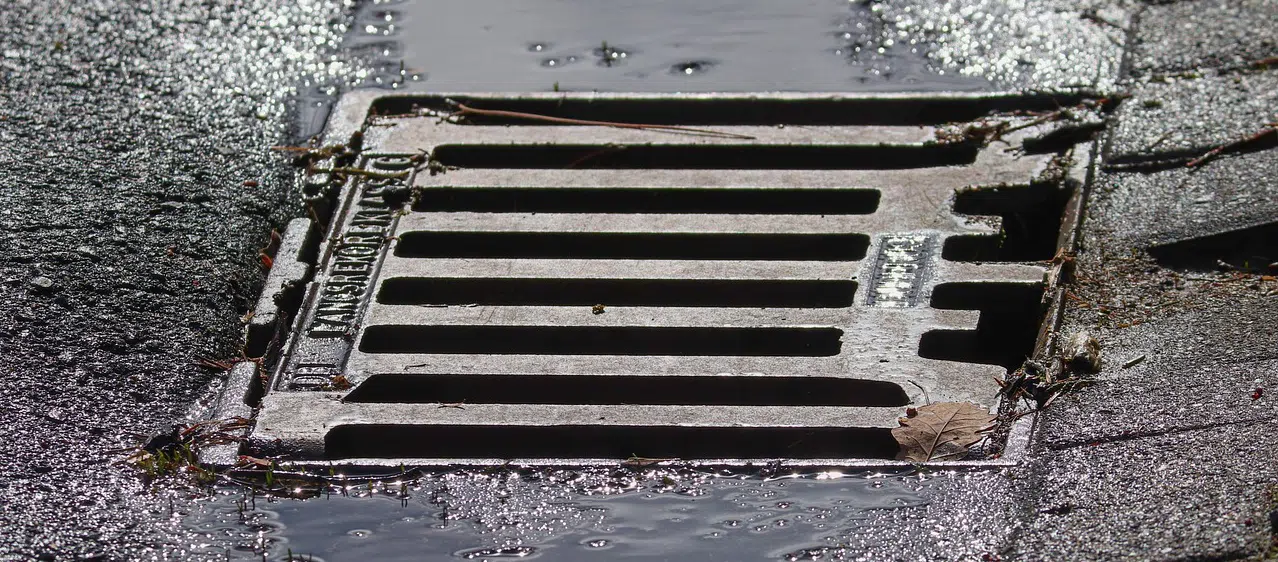
Why Storm Drains Attract Raccoons
Below-ground tunnels can offer a host of advantages for wildlife roaming around our cities. Let's examine in more detail:
- Shelter and Refuge
Storm drains offer protection and escape from Toronto's hot and humid summers as well as harsh, cold winters. - Safety from Predators
While humans are the most prevalent threat to raccoons in the inner cities, there are still other natural predators around. Especially in recent years, the coyote population in urban areas has increased significantly. - Urban Food Sources
Storm drains are often used by raccoons to travel undetected - raid a trash can and bring the loot back to the drain. The presence of water is an added bonus as raccoons prefer to 'wash' their food before consumption. - Underground Highways
Drainage systems allow raccoons to navigate the GTA's urban landscape safely and undetected, avoiding traffic and human interaction.
Identifying Raccoon Activity in GTA Storm Drains
So, if raccoons hang out in storm drains... how do you know? Are there signs?
- Raccoon Sightings
Particularly after dusk and before dawn you may see a raccoon (and hopefully not stuck in a grate) entering or exiting drain openings in GTA neighbourhoods. - Unusual Noises
Raccoons have never been accused of being dainty or quiet; you may notice scratching, rustling, or any of the many vocalizations raccoons use to communicate with each other. - Droppings around Drains
Raccoon feces may be present near drain entrances or in areas where drains overflow. - Strong Odours
A strong, musky, or ammonia-like smell may be emanating from drain openings. - Debris Build-Up
Pay close attention to unusual accumulations of leaves, twig, or other nesting materials around drain inlets.
The Real Risks of Raccoons in GTA Drainage Systems
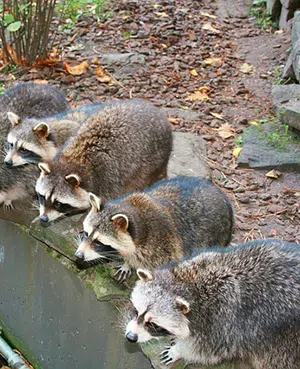 Aside from the obvious issue of a terrified critter being stuck and unable to free itself from the grip of a steel grate, there are other ramifications of raccoons in drainage systems.
Aside from the obvious issue of a terrified critter being stuck and unable to free itself from the grip of a steel grate, there are other ramifications of raccoons in drainage systems.- Drain Blockages & Flooding
Accumulation of leaves, debris, and raccoon nesting materials can impede water flow, exacerbating flooding issues common in parts of the GTA during heavy rainfall. - Infrastructure Damage
Raccoons can damage pipes and compromise the structural integrity of the drainage infrastructure. - Health Hazards for GTA Residents
Raccoon feces in drains can contaminate runoff, posing risks to pets and potentially humans. Raccoons themselves carry diseases such as rabies. - Difficult and Dangerous Removal
Attempting DIY removal from confined drain spaces is risky for both homeowners and animals. Raccoon removal from storm drains should be left to professionals and while observing proper safety protocols. - Potential for Unexpected Encounters
Raccoons emerging from drains in residential areas, parks, or even busy downtown Torontocan lead to startling and potentially dangerous situations for pedestrians or cyclists.
Traditional Raccoon Removal Doesn't Work for Storm Drains
- Underground Complexity
Drainage systems are often connected to multiple access points (storm grates, culverts, utility tunnels), making it nearly impossible to block off all escape routes. - Raccoons Re-Enter easily
Even if removed and relocated (legally within 1 km), raccoons often return through unsealed or adjacent drain points. - DIY Hazards
Attempting to seal or flush storm drains can lead to flooding during rainfall, trapped animals dying and causing severe odour or contamination, and/or legal issues from interfering with municipal infrastructure. - Access and Safety Issues
Confined spaces, low visibility, and water hazards make getting rid of raccoons from storm drains too dangerous and ineffective for DYI and require professional animal removal services.
Hawkeye’s Permanent Raccoon Removal for Storm Drainage
Because blocking off entry points is not an option here, raccoon removal really is the only solution. Raccoon removal generally means live trapping the animal(s) and then releasing them within a one kilometre radius from the capture site. It is almost inevitable that the raccoon(s) will return. Realistically, dropping the animal 1km away will likely still be in the vicinity of the same tunnel system they were caught at.
Contrary to all other Ontario wildlife removal companies, Hawkeye Bird & Animal Control can offer permanent raccoon control and removal in Toronto and the GTA. Raccoons are trapped or physically captured legally and humanely euthanized. This is the same procedure used by animal shelters and in accordance with veterinary guidelines.
- Shelter and Refuge
-
How to Get Rid of Raccoons in Water Treatment Plants
Water treatment plants (WTPs) and wastewater facilities (WWFs) are mission-critical infrastructure where security and hygiene standards are absolute. Raccoons, seeking shelter and access to water, can compromise this essential barrier, risking mass contamination of the public water supply, extreme regulatory penalties, and critical equipment failure. This situation makes professional wastewater facility raccoon removal essential to maintaining public safety and regulatory compliance.
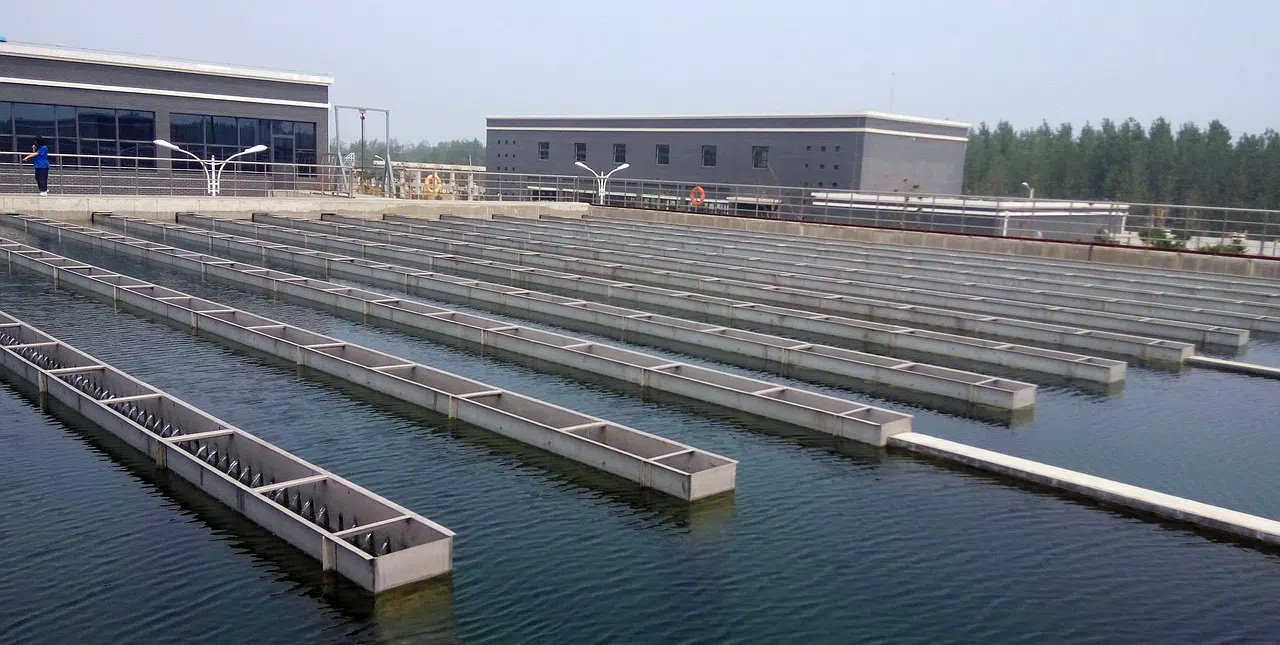
In this article, we'll look at the unique access points, the sevrious public health and regulatory liabilities created by raccoon infestation, and the only guaranteed, high-security method for permanent removal and site hardening.
Why Raccoons Target High-Security Water Facilities
- Guaranteed Water Source
These facilities offer accessible, open water (such as clarifiers, reservoirs, drains) and high humidity levels, which are irresistible to wildlife. Raccoon in particular are drawn to all things water; they prefer to rinse or "wash" their food before consumption and are quite accomplished swimmers. - Warm, Protected Thermal and Utility Shelter
Pump houses are structures housing high-value, heat-generating motors and pumps.
Chemical storage voids offer shelter around chemical tanks and storage areas that trap heat. - Underground Tunnels
Tunnels and pipe chases running beneath the facility allow for undetected movement as well as protection from larger predators. - Vulnerability of Infrastructure
Raccoons exploit necessary gaps in facility security including unsecured manholes, lift stations, and drain gates. - Utility Penetrations
Unsealed openings where electrical conduits or large pipes enter pump houses or administration buildings are easily exploited.
Risks of Raccoons in Water Treatment & Wastewater Facilities
Contamination Risks
Raccoon feces in filtration zones, influent areas, and sludge processing rooms enable parasites like raccoon roundworm & pathogens to enter treatment streams and allow cross-contamination between equipment, catwalks, and chemical handling areas.
Damage to Mechanical & Electrical Infrastructure
Raccoons chewing wiring for pumps, blowers, PLCs, and electrical conduits allow for interference with SCADA systems, sensors, and automation lines.
Damage to UV systems, ozone treatment equipment, chlorination panels, etc. is also possible.
Breach of Regulatory Compliance (Important for Municipal Facilities)
Water treatment is governed by strict municipal/provincial safety regulations, so any wildlife breach can trigger compliance violations, fines, and audits and even cause shutdowns.
Worker Safety Hazards
Intruding raccoons cause issues ranging from aggression near dens (mothers protecting their kits) to rabies & leptospirosis exposure and slip and fall hazards from feces near wet slabs or catwalks.
Disruption of 24/7 Continuous Operations
Raccoons blocking clarifier lanes, secondary room doors, or containment areas can shut down pumps or blowers, resulting in severe downtime and emergency repair costs.
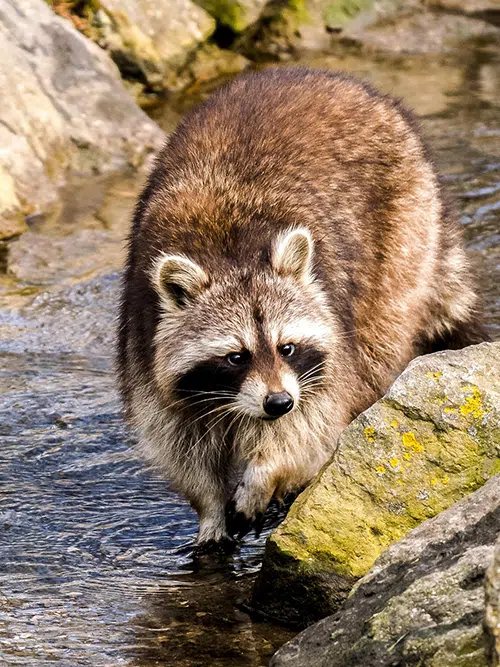 Identifying Raccoon Activity in Water Treatment Facilities
Identifying Raccoon Activity in Water Treatment FacilitiesWhen considering raccoon removal for water treatment plants, managers and operators should look for:
- Disturbed insulation around pipes and tanks
- Damaged or chewed wiring near pumps/SCADA panels
- Tracks around clarifiers or sludge dewatering areas
- Nesting inside blower rooms or chemical storage areas
- Access holes in roof membranes or vents
- Noise, such as scratching or thumping inside ducting or pipe chases
- Pungent, musky smell near warm mechanical rooms
Why Permanent Raccoon Removal Is the Only Effective Solution
Deterrents are rarely successful and relocation often fails in complex facilities with many re-entry points.
- Canada’s wildlife law: Raccoons must be released within 1 km, so the release site may still be on the property and there’s a 99% return rate, especially in plants they’ve mapped.
- Hawkeye has the legal license to trap and euthanize—guaranteeing permanent removal.
Hawkeye's Permanent Raccoon Removal for Water Treatment Plants
- The Hawkeye Permanent Guarantee
Hawkeye Bird & Animal Control holds the unique licenses in the GTA for permanent removal (humane euthanasia). This is the only guaranteed way to permanently eliminate the recurring source of contamination and restore security compliance. - High-Security Protocol Requirements
Our trapping, removal, and exclusion work is done under strict security supervision (e.g., photo ID check, controlled entry/exit) to maintain facility bio-security. Meticulous use of double-bagging, specialized PPE, and HEPA-filtered vacuums ensures zero cross-contamination of clean areas and safe disposal of highly hazardous materials. - Permanent Infrastructure Hardening
We advise or offer additional work to ensure the sealing of all utility penetrations and vulnerable access points with robust, long-term materials. - Long-Term Monitoring Programs
We help with monitoring goals and a wildlife management plan for municipal plants, industrial wastewater facilities, and pumping stations. Quarterly or monthly wildlife inspections are available, as is emergency response.
Why Water Treatment Plants Choose Hawkeye
- Hawkeye Bird & Animal Control is the only GTA wildlife agent offering and guaranteeing permanent raccoon removal.
- We have extensive experience with municipal, industrial, and utility infrastructure.
- Our technicians under go ongoing safety-training for chemical plants, confined spaces and hazardous zones.
- We have the expertise and ability to comply with government procurement standards.
- A partnership with Hawkeye protects plant uptime and regulatory compliance.
FAQs for Water Treatment Plant Operations
Q: Can raccoons compromise water quality test results at treatment facilities?
A: Yes, raccoon feces in the water will absolutely compromise test results. Raccoon waste contains various pathogens and bacteria, including E. coli and the raccoon roundworm (Baylisascaris procyonis).
Q: Can raccoons access clarifier bridges or floating equipment?
A: Raccoons can absolutely access these types of equipment, particularly if they're located close to the water. Despite their rolly-polly appearance, raccoons are very athletic and agile climbers.
Q: Are raccoons attracted to sludge or biosolids areas?
A: Yes, raccoons can be attracted to sludge and biosolids areas if they contain insects, invertebrates (grubs and worms) or other organic matter.
Q: Are raccoons known to enter pump stations or underground valve chambers?
A: Unfortunately, raccoons can enter just about any space that promises shelter from the elements and predators. It's note worthy that they can squeeze through very small openings... much smaller than one might think possible.
Q: Does finding raccoon feces on a pipe access platform require a complete service shutdown? Can raccoon infestations lead to treatment plant shutdowns?
A: A raccoon infestation could potentially lead to a plant shutdown, depending on the severity and company policy. It any case, raccoon feces is considered a biohazard that requires immediate and proper cleanup following specific safety protocols, and the area should be restricted until all cleanup is complete.
Q: Our facility uses chlorine. Will that kill the raccoons if they drink it?
A: Probably not. While large amounts of highly concentrated chlorine would likely be harmful or even fatal to a raccoon, chlorinated water generally won't kill them.
Q: How do we prevent raccoons from digging under the chain-link fence perimeter?
A: The fence needs to be buried at least one foot (12 inches) to deter raccoons from digging. A strand of electrified wire near ground level might also help.
Q: Raccoons are chewing wiring on the pump motor casings. What permanent barrier can be used?
A: You can certainly try heavy-duty wire mesh around sensitive equipment but keep in mind that raccoons are highly intelligent and determined. Chances are that they will find a way.
Q: What is the safest time of day to inspect suspected raccoon areas?
A: If your goal is to actually observe the animal coming or going and map its travel route, evening/overnight is your best bet. If you need to merely find signs of raccoon activity, any time of day will do.
Q: Can raccoons survive in warm pipe galleries or air-handling tunnels?
A: Oh definitely! In fact, these types of spaces make a near perfect winter den!
Protect Your Water Treatment Plant with Hawkeye
Raccoon intrusion into a water treatment facility is an unacceptable safety, public health, and compliance crisis. Due to the catastrophic risks involved, only a definitive, high-security, and permanent solution is viable.
Protect the public water supply and eliminate regulatory risk and contact Hawkeye todayfor a high-security inspection and the guaranteed, permanent raccoon removal solution.
If you're looking for wildlife control for water treatment facilities, Hawkeye's raccoon removal services are available all across Southern Ontario, including Toronto , Scarborough , Brampton, Vaughan , Markham , Ajax , Pickering , Newmarket , Etobicoke , Oshawa , and Mississauga.
Related Articles:
- Guaranteed Water Source
-
How to Get Rid of Raccoons in Your Cottage
If you're lucky enough to own a summer retreat, perhaps in the Muskokas or near any of our seemingly countless, beautiful Ontario lakes, you probably know the sinking feeling of arriving at your cottage for the first weekend of the season, only to be met by the stench of ammonia and the sight of shredded insulation.

Cottages (or camps, as they are often called up north) are prime targets because they remain undisturbed for months, providing raccoons with a high-security, low-risk environment to den and breed. The pantry often remains somewhat stocked and provides for a quick snack and, of course, fresh, clean water is just a few steps away.
For cottage owners around the GTA, a raccoon infestation isn't just a pest problem—it’s a threat to your investment and peace of mind. This article explores why DIY methods almost always fail in remote settings and why Hawkeye’s permanent removal is the only way to secure your getaway for the long term.
-
How to Identify and Remove Raccoon Dens in Winter
With its freezing temperatures and harsh winds, Ontario winter forces raccoons to abandon flexible den habits for a single warm, secure location, creating a high-risk, long-term raccoon infestation in winter, which lasts until spring and beyond. Identifying and addressing these primary dens in the cold months is crucial to preventing structural damage and costly spring repairs.
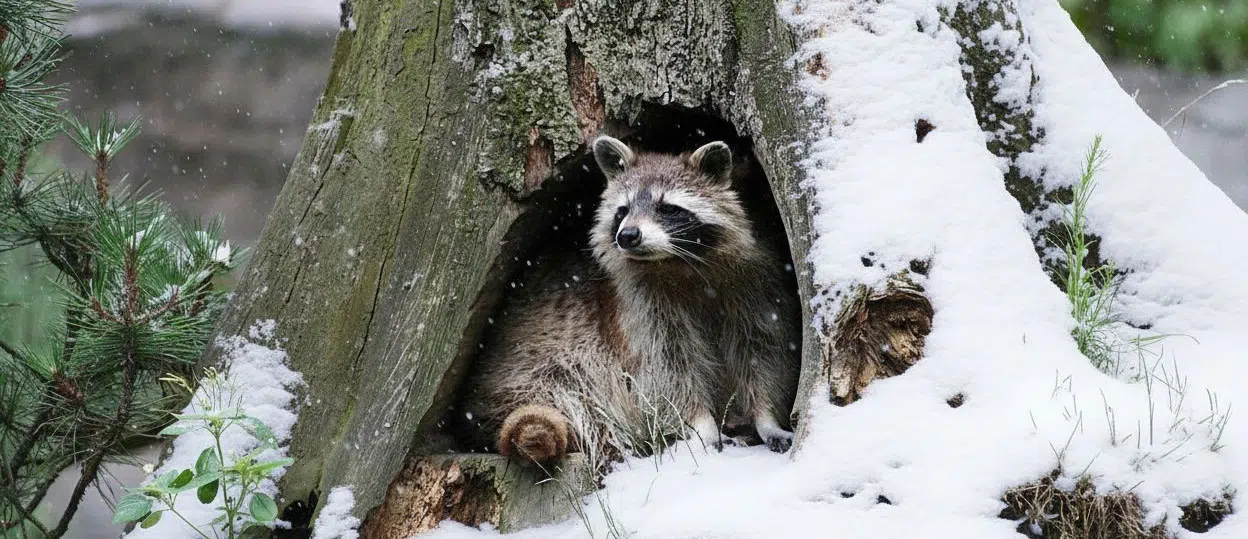
Raccoon Winter Behaviour in the GTA
After a flurry of activity during the fall months where their focus was on calorie intake, raccoons settle into long winter naps once the snow arrives. Focus is now on staying warm and safe from predators. This behaviour is one of the reasons homeowners and commercial/industrial property managers should search for winter raccoon control earlyin the season, before a raccoon infestation is too entrenched.
- Torpor, Not Hibernation
Raccoons do not truly hibernate but rather enter a state of torpor—a deep sleep broken by periods of waking. While in this state, their body temperature lowers, and breathing and metabolism slow to conserve energy. They will keep a single, secure den for weeks at a time to conserve energy and survive freezing temperatures. - The Thermal Imperative
During the winter months, raccoons seek out areas with trapped heat (i.e., from the house, equipment, or ground) and maximum wind protection. This commitment to one warm spot makes winter dens extremely destructive. - Reduced Activity, Increased Risk
While they forage less often, raccoonss' activity when inside the den is focused on insulating and securing the perimeter by procuring and using any suitable materials. This often results in severe damage to building insulation, etc.
Where Raccoons Den in GTA Winters
Where do raccoons usually nest during colder months? Residential, commercial, and industrial properties offer a plethora of options.
- Structural Areas (Warmest Spots):
- Attics:
Attics are probably the most sought-after spot for raccoons (and other wildlife - think squirrels!) to wait out old man winter. Proximity to chimneys or plumbing stacks and just the rising heat from floors beneath make attics perfect for winter denning. Raccoons access attics through the roof and poorly sealed roof vents. - Chimneys:
If uncapped, your chimney can provide a dark, contained vertical shelter. - Garage Ceiling Voids:
The insulated space above an attached garage creates a thermal bridge to the main house/building. It is also safe and enclosed with little to no human traffic.
- Attics:
- Ground-Level Havens (Insulated Spots): Areas that hold ground heat and are protected from the wind and snow.
- Crawl spaces:
Crawl spaces underneath a structure provide consistent, moderate warmth. - Window Wells Basement Voids:
Small, contained pockets near the foundation may also be converted to a winter den. - Sheds/Deck Voids:
Areas under sheds or decks, especially if the ground is skirted, trap heat and provide sufficient shelter.
- Crawl spaces:
- Commercial Industrial Spots (High-Value Warmth):
- Warehouses and Factories:
Heat from machinery or HVAC vents attracts raccoons. Low-traffic areas like maintenance rooms should be inspected regularly. - Abandoned or Low-Traffic Buildings:
Quiet, undisturbed areas still draw furry winter dwellers, even if not actively heated. Raccoons can evade detection for months in abandoned or vacant properties. - Seasonal Businesses and Schools:
Buildings that are closed for periods of time, such as schools often see raccoon invasions. By the time the animals are detected, it's often too late and significant damage has been done. - Loading Docks:
Open loading dock doors invite raccoons inside to explore hidden spaces for temporary dens.
- Warehouses and Factories:
- Natural/Outdoor Denning Spots near Homes:
- Hollow trees, brush piles, abandoned burrows, woodpiles, and old cars/trucks and machinery also make for suitable raccoon winter dens.
- Hollow trees, brush piles, abandoned burrows, woodpiles, and old cars/trucks and machinery also make for suitable raccoon winter dens.
- Torpor, Not Hibernation
-
How to Keep Raccoons Away from Bird Feeders Permanently
Many homeowners and property managers set up bird feeders to attract songbirds, especially during colder months. Unfortunately, bird feeders are also a major attractant for raccoons—intelligent, nocturnal, opportunistic, and highly adaptable animals.
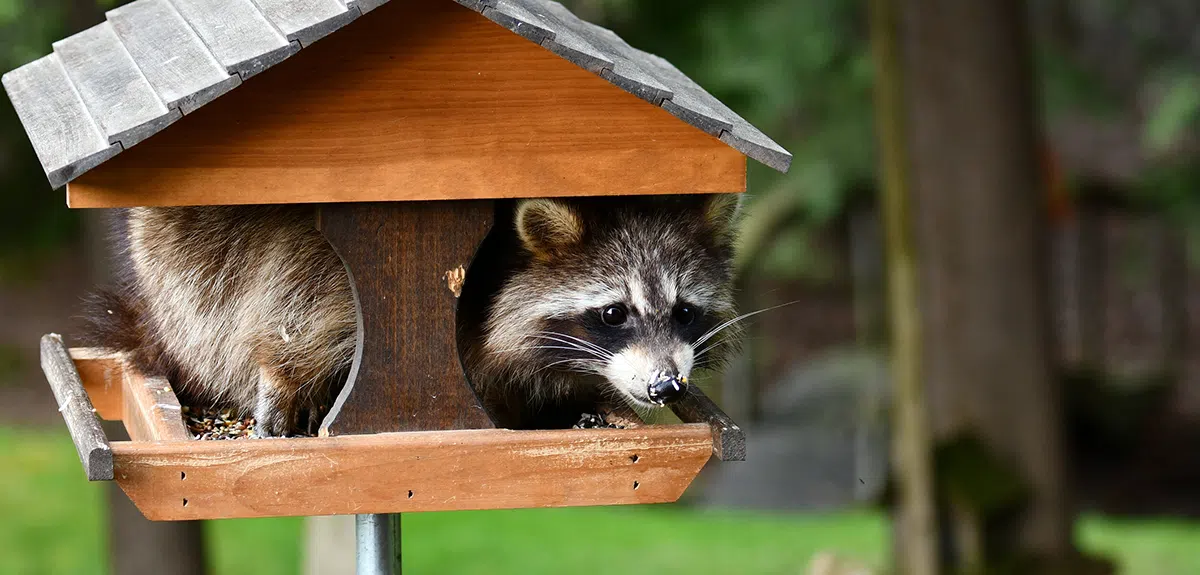
As temperatures drop, raccoons seek easy food sources, and bird feeders are one of their top winter targets. Let's explore what you can do to get rid of raccoons and keep them out of your feeders in the future. Keep in mind that DIY deterrents and gadgets are rarely all that effective, but Hawkeye Bird & Animal Control offers legal and permanent raccoon removal services in the GTA.
Why Raccoons Are Attracted to Bird Feeders
- Food Availability
Spilled seeds and suet provide the high-calorie nutrition that raccoons need to survive the winter. Both black-oil and striped sunflower seeds are among their favorites. On that note, you might also fin squirrel and skunk visitors around your bird feeder. - Easy Access
Raccoons are agile climbers and can easily reach most bird feeders, poles, or decks. - Nighttime Feeding
Unlike birds, raccoons are active at night, so there's no competition around the feeder and the mess you find in the morning may well signal a raccoon visit. - Smell and Habits
Raccoons have an excellent sense of smell that can lead them to your bird feeder. And once they find a reliable food source, they keep returning.
How Raccoons Cause Problems Around Bird Feeders
- Damage:
- Bending poles, breaking feeders, and tearing mounts.
- Damaging nearby deck railings or roof gutters while climbing.
- Health risks:
- Droppings on patios and decks contain roundworm and other pathogens.
- Risk of contamination near outdoor furniture and children’s play areas.
- Secondary infestation risks:
- Raccoons attracted to feeders often explore nearby attics, chimneys, and crawl spaces for shelter.
- Bird feeders act as “gateway attractants” leading to full property infestations.
Recognizing Raccoon Activity Around Your Bird Feeder
- Feeder emptied overnight.
- Tracks or muddy paw prints on decks or railings.
- Torn suet cages or feeder poles bent.
- Scattered seeds and droppings under the feeder.
- Noises at night near decks or walls.
Pro Tip: Inspect your feeders early in the morning for signs of nocturnal visitors.
- Food Availability
-
Keep Raccoons at Bay: Effective Ways to Raccoon-Proof Your Home
Do you have a raccoon problem? If so, you are not alone—raccoons are notoriously clever and agile creatures who can quickly make their way into seemingly inaccessible areas of your home. Whether it’s the roof or a window that has been left open, they know how to get in.
But instead of resigning yourself to months of trying to remove them after they already got access, why not focus on preventing them from entering in the first place? In this blog post, we'll be going over some effective ways for you to raccoon-proof your home and keep those pesky critters out for good.
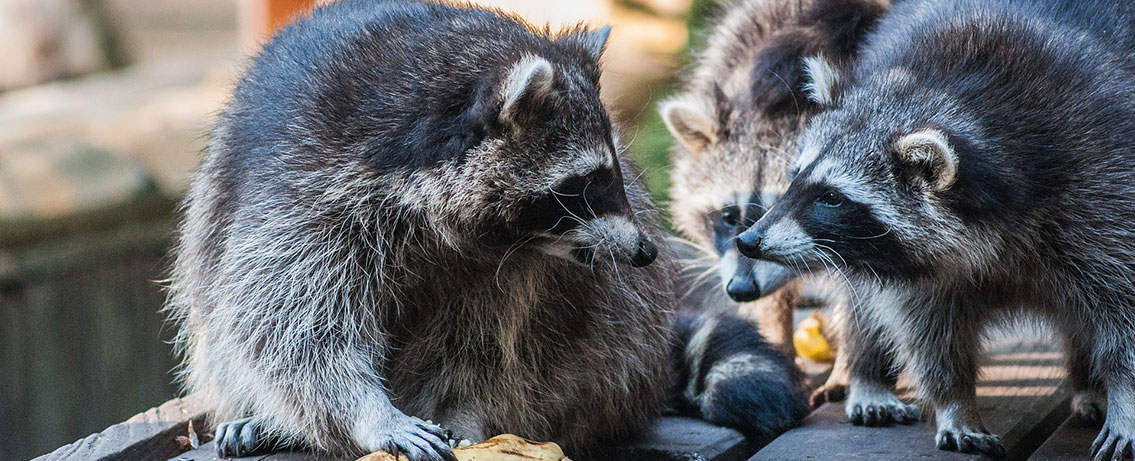
-
Permanent Raccoon Removal for GTA Hotels and Resorts
In our digital age, a single guest video of a raccoon on a hotel balcony or near a buffet can go viral, causing a resort or hotel irreversible brand damage and reputational suicide. And raccoons nesting in hotels or resort facilities? Talk about a disaster.

The hospitality industry is a huge magnet for opportunistic urban raccoons. Hotels and resorts offer 24/7 food availability, heated structures, and complex landscaping. That’s why immediate, discrete, and professional raccoon removal for resorts, hotels, and other vacation properties is so critical.
-
Permanent Raccoon Removal for Schools & Universities in the GTA
Schools and universities make for prime raccoon habitats, offering sprawling grounds, abundant food waste from cafeterias and waste bins, and complex architecture such as portables and tunnels. In fact, educational facilities provide everything a raccoon needs to thrive.

The stakes of raccoon infestations are high: Beyond property damage, the presence of raccoons in a school environment introduces severe liability risks, including student safety, public health concerns, and potential closures. This is why campus infestations require a different approach than residential properties. Trapping and relocating almost always fails - it's time to look for a solution that works, including raccoon control for school buildings and grounds that addresses liability, safety, and long-term prevention.
Permanent Raccoon Removal: Learn more orCALLfor a free consultation.
-
Permanent Raccoon Removal in Winter (GTA)
As temperatures drop below freezing and natural foraging is inhibited by snow and ice, raccoons enter a state of prolonged periods of sleep (called torpor), turning attics and crawlspaces into highly sought-after survival shelters.
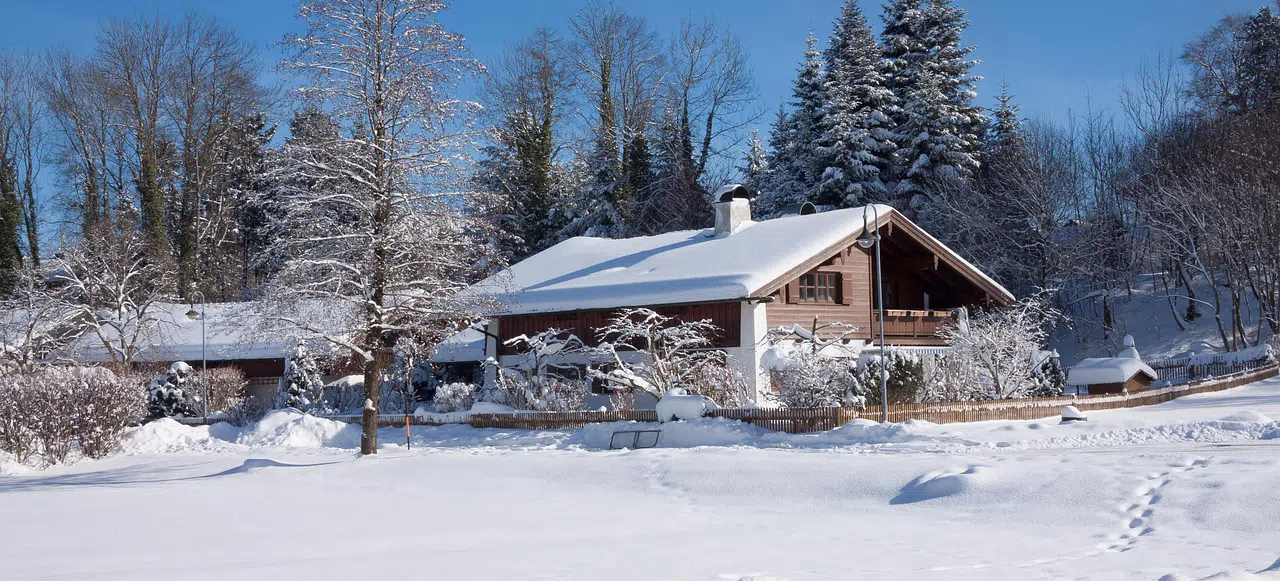
There is a persistent myth of "it's ok to wait until spring" and that raccoons merely hibernate and will leave on their own accord once the worst of winter is over. In this article, we will discuss why this is approach would be greatly misguided and potentially very costly. Raccoons neither hibernate, nor necessarily move out with warmer weather.
When it comes to humane animal control, the time to act is the minute you discover raccoons in your home - Call Hawkeye Bird & Animal Controlat once.
What Actually Happens to Raccoons in GTA Winters
Raccoons Do Not Hibernate
Instead, they enter short periods of torpor. This is a state of reduced activity that involves lowered metabolism, heart rate, body temperature, and reduced movement to conserve energy during periods of food scarcity and extreme cold.
Raccoons Are in Desperate Need of Warm Shelter
Cold snaps force raccoons to seek heat-retaining structures, preferably near food and water sources. During Ontario's harsh winter months, raccoons invade:
- Attics, crawlspaces, basements
- Utility rooms, boiler rooms
- Mechanical and service corridors
The modern, urban raccoon's chance of winter survival is actually much higher than its cousin's out in the woods. Both, residential and commercial buildings provide adequate shelter and often easily raided trash bins or dumpsters, bird feeders or outdoor pet food and water bowls. Additionally, larger predators (i.e., coyotes) often avoid areas with frequent human traffic and pose less of a threat to raccoons.
-
Pre-Spring Raccoon Prevention Planning
The weeks leading up to spring are not "off-season" for raccoons - quite the opposite. It's mating season! While the GTA is still frozen, raccoons are at their most active briefly abandon their life of solitude. This is the time you might see groups of raccoons as males compete for mating partners and females begin scouting for maternity dens in short order.

Don't wait until you hear scratching in late March or April and find an established nursing den within your walls. Proactive planning before spring allows property owners to identify vulnerabilities before kits are born, saving thousands in repair and biohazard costs. Raccoon prevention before spring is far more effective and far less expensive than dealing with a maternity den in April.
-
RABIES Update for March 29 2017
Rabies continues to spread through Ontario, mainly the Raccoon strain. Here is an update on the situation on rabies in Ontario from the Ontario Ministry of Natural Resources and Forestry (MNRF) as of March 29, 2017.
OMNRF are reporting 1 new case of raccoon strain rabies from the previous week, occurring in a raccoon from Haldimand. As of March 29, 2017, there have been a total of 295 cases of raccoon strain and 8 cases of fox strain rabies in Ontario. Hamilton has been the hardest his area with a total of 232 cases of Racccoon Rabies.
-
Raccoon Control & Removal for Patios
Ahhh...summer. We all look forward to time on the patio—designed for relaxation, dining, family time, and social interaction. But did you know that your patio can be the very reason your property is plagued by local wildlife? Professional patio raccoon removal ensures the problem is handled safely and permanently before damage escalates.

Let's explore this in more detail below.
Page 1 of 2















